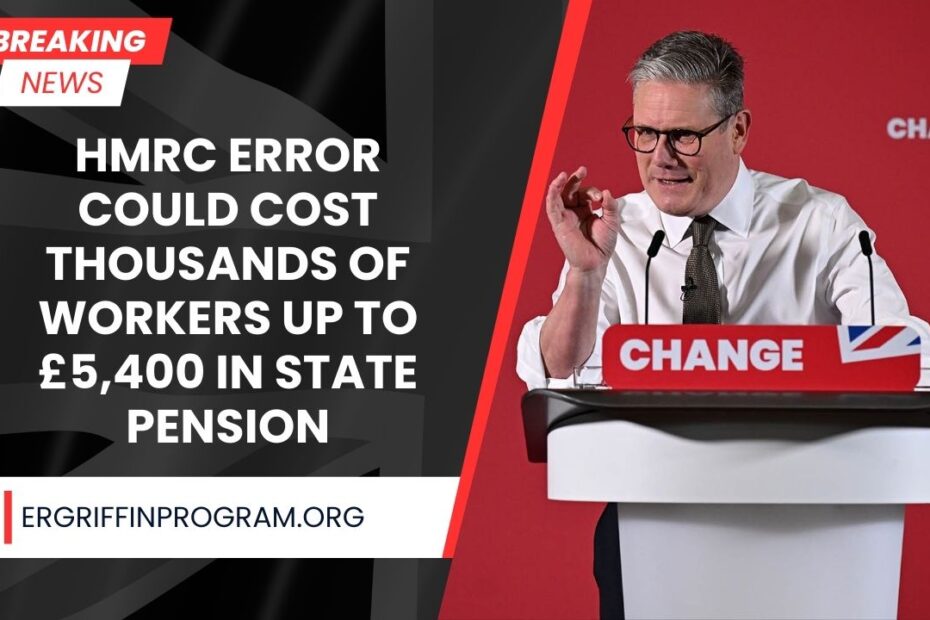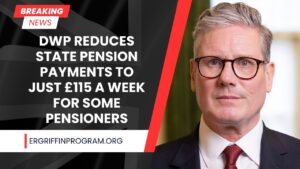Thousands of self-employed individuals may unknowingly be at risk of losing future retirement income due to errors in their National Insurance (NI) records, particularly concerning Class 2 National Insurance Contributions (NICs).
Financial experts are sounding the alarm over mistaken refunds by HMRC, which could lead to reduced state pensions and benefits.
Understanding the Issue: Mistaken Refunds of Class 2 NICs
Until April last year, self-employed workers were required to pay Class 2 NICs, a flat weekly contribution of £3.45. While the amount seems negligible, its significance lies in qualifying for the state pension and certain benefits.
Many self-employed workers have now reported that HMRC refunded these contributions in error, effectively marking certain years as if no contributions were made.
Missing even one year of NI contributions could jeopardize your eligibility for the full state pension and affect benefits like Maternity Allowance.
Impact on Your State Pension
To receive the full new state pension of £11,973 per year, a person needs 35 qualifying years of NI contributions. Falling short can significantly reduce what you receive annually.
| Qualifying Years | Estimated Annual Pension |
|---|---|
| 35 Years | £11,973 |
| 10 Years | £3,420.86 |
| 34 Years | £11,631 |
As Tom Selby, Director of Public Policy at AJ Bell, warns: missing even a single year could cost £342 annually—a small figure that adds up to £5,472 over a 16-year retirement (from age 66 to 82), and this amount would grow with inflation due to the triple lock protection.
The Abolition of Class 2 NICs
The abolishment of Class 2 NICs in April 2024 was meant to simplify tax responsibilities for self-employed individuals. Here’s how contributions are now handled:
- Earnings above £6,845/year: NICs are credited automatically—no action required.
- Earnings below £6,845/year: No compulsory contributions, but individuals can make voluntary payments to maintain pension eligibility.
Self-employed individuals earning below the threshold must proactively contact HMRC and make arrangements to pay voluntarily before the self-assessment deadline.
Common Mistakes Among the Self-Employed
According to Greg Moss of 11.2 Financial Planning:
- Some self-employed workers fail to register correctly and miss out on NI credits.
- Others are unaware they need to make voluntary contributions when below the income threshold.
- Some people follow incorrect processes, causing their payments to be rejected or unrecorded.
He noted that these issues were exacerbated by poor communication from HMRC, leaving many self-employed individuals unaware of how these changes affect their state pension.
What HMRC Says
An HMRC spokesperson acknowledged the issue and stated:
“We’re sorry to those affected and are working hard to resolve the issue.”
What Is National Insurance?
National Insurance (NI) is a form of tax on earnings that helps individuals qualify for:
- The state pension
- Benefits like Maternity Allowance and Jobseeker’s Allowance
For the employed, NICs are usually deducted automatically by employers. However, self-employed individuals must pay NICs themselves when they file their self-assessment tax return.
Here’s how typical NICs work:
- Earn under £242/week: Pay nothing.
- Earn £243 to £967/week: Pay 10% on this portion.
- Earn above £967/week: Pay 2% on the remaining amount.
How to Check Your National Insurance Record
If you’re concerned that your contributions may not be correctly recorded, take these steps:
- Log into your Government Gateway account to view your full NI history and state pension forecast.
- Request a paper statement from HMRC if needed.
- If you notice errors, contact HMRC immediately to resolve any discrepancies.
Self-employed workers must be vigilant when it comes to their National Insurance contributions, especially during this period of transition and reform. With Class 2 NICs now abolished, it’s crucial to ensure your records are correct and voluntary contributions are made if necessary.
Even one missed year could significantly reduce your retirement income. Take proactive steps today to protect your future pension entitlement.
FAQs
What are Class 2 National Insurance contributions?
They were a fixed weekly payment (£3.45) made by self-employed individuals to build entitlement to the state pension and benefits. They were abolished in April 2024.
How do I know if HMRC refunded my NICs by mistake?
Log in to your Government Gateway account and check your NI contribution history. If you see a missing year or refund, contact HMRC.
Can I still make voluntary NI contributions for previous years?
Yes, you can usually make backdated voluntary payments for several previous years, but you must contact HMRC and act before set deadlines.



